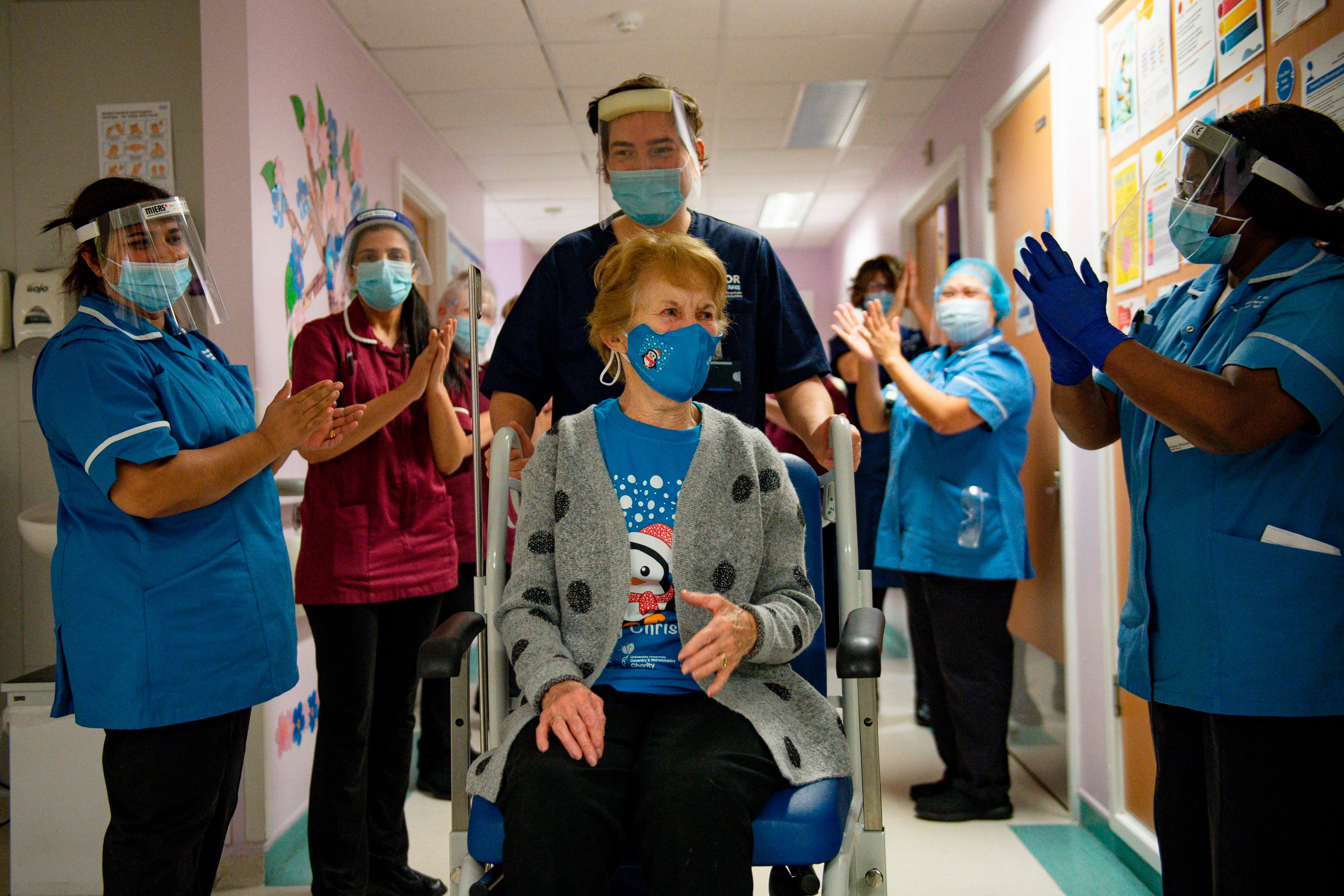Americans likely to start getting Pfizer vaccine this week as FDA finds it gives ‘strong’ Covid protection 10 days after shot
Data will be reviewed by the FDA in public, live streamed, on Thursday

Your support helps us to tell the story
From reproductive rights to climate change to Big Tech, The Independent is on the ground when the story is developing. Whether it's investigating the financials of Elon Musk's pro-Trump PAC or producing our latest documentary, 'The A Word', which shines a light on the American women fighting for reproductive rights, we know how important it is to parse out the facts from the messaging.
At such a critical moment in US history, we need reporters on the ground. Your donation allows us to keep sending journalists to speak to both sides of the story.
The Independent is trusted by Americans across the entire political spectrum. And unlike many other quality news outlets, we choose not to lock Americans out of our reporting and analysis with paywalls. We believe quality journalism should be available to everyone, paid for by those who can afford it.
Your support makes all the difference.Pfizer and BioNTech’s Covid-19 vaccine was found to be strongly protective against Covid-19 and gave a high level of protection 10 days after the first shot, according to research data made public on Tuesday for the first time.
The data offer the world’s first detailed look at the evidence behind the shots.
The vaccine worked well regardless of a volunteer’s race, weight or age, the data showed. While the trial did not find any serious adverse events caused by the vaccine, many participants did experience aches, fevers and other side effects.
Of the 38,000 people in the trial, 84 per cent had a reaction on the site of the injection, and 63 per cent reported fatigue. More than half, 55 per cent, suffered headaches and 38 per cent had chills.
The Food and Drug Administration posted its analysis online even, as across the Atlantic, Britain began vaccinating its oldest citizens with the Pfizer-BioNTech shots.
But the US judges experimental vaccines in a unique way: On Thursday, the FDA will convene what’s essentially a science court that will debate – in public and live-streamed – just how strong the data backing the shots really is.
A panel of independent scientists will pick apart the FDA’s first-pass review before recommending whether the vaccine appears safe and effective enough for millions of Americans.
The FDA, which typically follows the committee’s advice, is expected to issue a decision in the days following the review. If given the green light, the first recipients would be health care workers and nursing home residents, according to plans laid out by each state.
Pfizer and its German partner BioNTech previously reported the shots appear 95 per cent effective at preventing mild to severe Covid-19 disease in a large, ongoing study.
The study is based on the first 170 infections detected. Only eight of the infections were among volunteers given the real vaccine, while the rest had received a placebo.
That was measured soon after study participants got their second dose.
Still unknown is how long that protection lasts.
“We’re looking at the best possible data,” said Dr Paul Offit of Children’s Hospital of Philadelphia and an FDA adviser.
“People worry, reasonably, how about six months later?”
The other critical issue: safety. Pfizer has reported no serious side effects. Some recipients of the vaccine experienced flu-like reactions – including fever, fatigue or muscle aches – especially after the required second dose. It’s a sign the immune system is revving up, able to recognise and fight back if the real virus comes along.
Other questions on the FDA advisers’ list include questions such as how well the shots protect people over 65 or those with additional health complications, such as obesity and heart disease.
They want to know whether those who are vaccinated could still spread the virus, and what pregnant women should be told.
Studies in children as young as 12 are just beginning.
Emergency vaccinations could begin before Pfizer’s 44,000-person study is complete, and answering some of those questions will require keeping that study going.
Health authorities are wrestling with how to do so in a way that’s fair to placebo recipients who justifiably would want to get the real vaccine.
That access “is top of mind for many”, Pfizer and BioNTech recently told trial participants.
The companies said they’re exploring ways to let placebo recipients switch to the vaccine group once they meet eligibility criteria for early access – if they’re health workers, for instance, or when the line opens for other essential workers or people over age 65.
On the safety front, study volunteers will be monitored for two years, but even studies of tens of thousands of people can’t spot a complication that only strikes one in a million. So the government also is gearing up for unprecedented monitoring of recipients once emergency vaccinations get underway.



Join our commenting forum
Join thought-provoking conversations, follow other Independent readers and see their replies
Comments